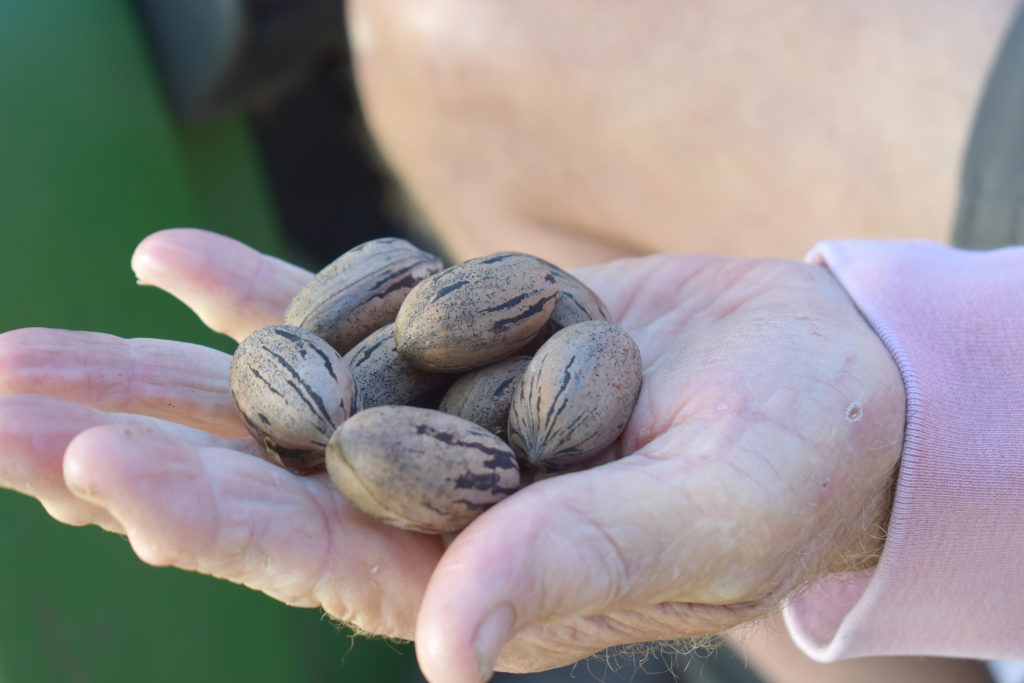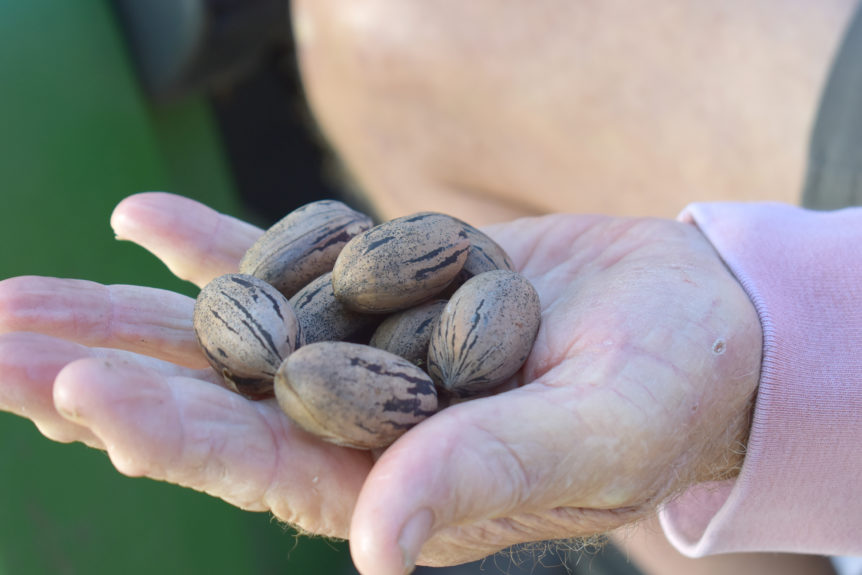
By Clint Thompson
Georgia pecan producers remain optimistic that India has a bright future as a pecan export destination.
Georgia pecan grower Justin Jones first discussed India during the Georgia Pecan Growers Association Conference and Trade Show last April. He addressed the issue again at the recent Fall Field Day in Tifton, Georgia.
“The biggest thing for us right now is trying to get an in-shell code. Right now, you can only ship a shelled meat into India. The industry, APC (American Pecan Council) has been heading this up. It’s basically a PQ (plant quarantine) code is what they call it; a bar code when it comes into customs,” Jones said. “We have done the paperwork on our side. A lot of work went into the pecan federation to try to figure out where that paperwork was in Washington during the administration change. We got it figured out.
“It’s back on the India side now. We’re waiting for their equivalent of USDA to approve and send back. At that point, we’ll be able to sell inshell as well.”
Members of the APC, Georgia Department of Agriculture, Georgia Pecan Growers Association and Georgia Pecan Commission attended a recent USDA trade mission to India. The mission’s goal was to expand the industry in India in hopes of driving exports to the country.
Growth Expected Over Time
Once the code is approved, it will provide Southeast pecan producers with another large export destination, though the growth will be gradual.
“I think it’s going to be slow, mainly because, the buyers are really excited about it and compared in the grand scheme of things to other nuts, it’s not going to be a big mover. But the Indian culture does not know what a pecan is,” Jones said. “You’ve still got to get it out to the general public. We’re marketing it as a high-end nut. They’re calling it a nut of elegance. It’s not going to be your everyday staple, just because we can’t supply. If they were to take off, their consumption would be 10 times more than we could grow. We’re going to market it as a luxury item.
“I tell folks, a goal would be, if we’re seeing it in five years and if we’re at 10 to 20 million pounds, I think that would be a really good goal. I think it has the potential to be unlimited.”










